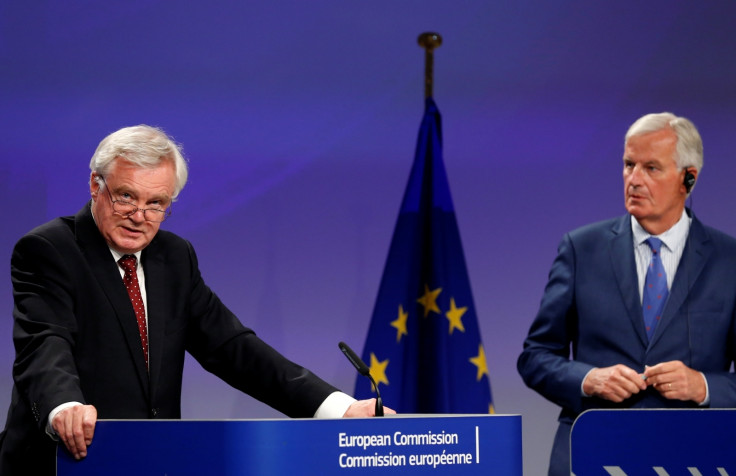Business lobby groups press David Davis to strike Brexit transition deal
Five major business lobby groups say companies will begin relocating jobs out of the UK in the coming months if no deal is in place.

Britain's biggest business lobby groups are set to warn Brexit Secretary David Davis that time is running out to strike a transition agreement with the European Union, as companies push ahead with plans to shift jobs out of the UK.
In a joint letter that is expected to be delivered to Davis this week, the groups, which include the Confederation of British Industry and the manufacturing body EEF, called for a two-year Brexit transition agreement to be struck that closely resembles the current UK relationship with the EU.
The Guardian newspaper, which saw a copy of the draft letter, reported that the groups warned that UK-based companies will push ahead with contingency plans in early 2018 if no deal is in place by then.
The Institute of Directors, the British Chambers of Commerce and the Federation of Small Businesses are among the other lobby groups to have signed the letter.
Business leaders have long pressed the government to negotiate a transition period after Brexit in order to avoid a "cliff edge" for companies.
"We need agreement of transitional arrangements as soon as possible, as without urgent agreement many companies have serious decisions about investment and contingency plans to take at the start of 2018," the letter reportedly says.
"Failure to agree a transition period of at least two years could have wide-reaching and damaging consequences for investment and trade, as firms review their investment plans and business strategies."
A spokesperson for the Department for Exiting the European Union insisted that the government was making progress in Brexit talks.
"The prime minister proposed a strictly time-limited implementation period in her Florence speech and was clear in her Article 50 letter that agreeing this principle early in the process would help minimise unnecessary disruption to businesses in both the UK and the EU," the spokesperson said.
"We are making real and tangible progress in a number of vital areas in negotiations. However, many of the issues that remain are linked to the discussions we need to have on our future relationship.
"That is why we are pleased that the EU has now agreed to start internal preparatory discussions on the framework for transitional arrangements as well as our future partnership."






















